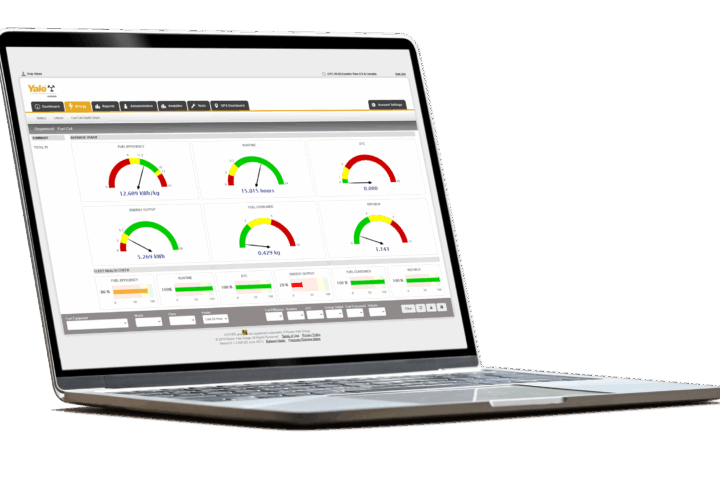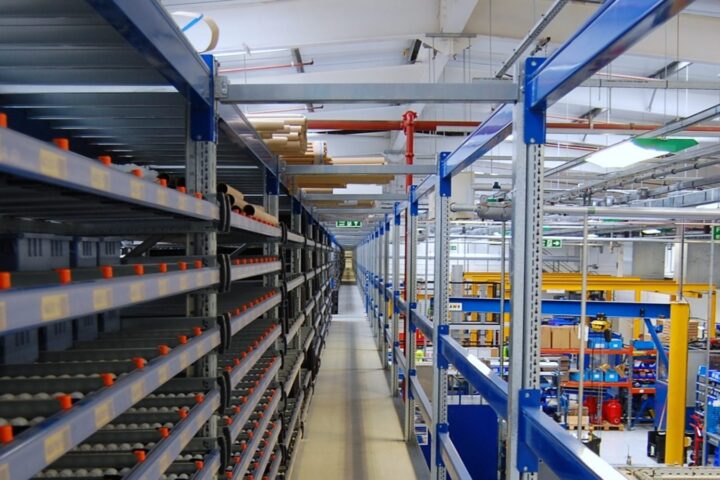There’s not a lot to like in this week’s economic update, with trailer orders plunging as a result of tariffs and economic uncertainty, and a forecast that the freight recession will extend into 2026.
Much of that, of course, hinges on how the U.S. courts rule on the legality of Trump’s tariffs. However, ACT Research notes the steel and aluminum tariffs are on solid legal ground, and both will impact freight markets and equipment pricing.

Trailer orders plunge
Economic uncertainty and costly tariffs weighed on trailer order activity in May, with orders plunging to 6,738 units according to preliminary data from FTR.
They were up 3% year over year against very weak May 2024 orders. Order cancellations surged to 37.6% of gross orders, the highest rate in a year.
“The ever-evolving tariff environment continues to disrupt the U.S. trailer market. The increase in tariffs on steel, aluminum, and fabricated components to 50% on June 4, will significantly increase production costs for OEMs/suppliers, putting further downside pressure on trailer demand,” said Dan Moyer, FTR’s senior analyst, commercial vehicles.
“Also, while tariffs on Chinese imports have moderated greatly – at least temporarily – other country-specific tariffs add further cost pressures. A further headwind on demand is uncertainty over the legality of the reciprocal and fentanyl-related tariffs that were based on emergency powers.”
FTR says fleets may delay purchases or turn to refurbished trailers to mitigate the impact of tariffs on new trailers.
“Potential consequences include heightened market price sensitivity, extended trailer lifecycles, and a shifting of some demand toward used equipment or alternative configurations,” Moyer said.
ACT Research reported a contraction of 26% in May
“Lower May net order intake was expected, as it is one of the weakest order months of the annual cycle. More concerning, though, is this level of order acceptance does nothing to support backlog growth, particularly with the elevated cancellation rates reported in the past several months,” said Jennifer McNealy, director CV market research and publications at ACT Research.
“With weak for-hire truck market fundamentals, low used equipment valuations, relatively full inventories, high interest rates, and the ambiguity of policy shifts still in play, ACT’s expectations for subdued build and order intake levels during 2025 remain intact.”
Freight recession here to stay
ACT Research is now anticipating the ongoing freight recession is here to stay into 2026, thanks in large part to tariffs. This as the courts weigh whether or not U.S. tariffs are legal without the approval of Congress.
“The ‘major questions doctrine’ is a legal argument the Supreme Court used to limit Biden’s authority on student loans and climate, ruling that federal agencies can’t make sweeping changes without clear congressional authorization. It was also cited by the U.S. Court of International Trade when it ruled the IEEPA reciprocal and fentanyl tariffs unlawful in late May. These tariffs continue as the ruling is stayed,” said Tim Denoyer, ACT’s vice-president and senior analyst.
“We think international trade is a major question, particularly for trucking, driving 16%-25% of U.S. surface freight volume. With a historic backlog on the Supreme Court’s emergency docket, but no appeal of the stay at this point, it’s not likely to be decided before the court takes a few months off soon. But if the eventual appeal is successful, it could reduce U.S. import tariffs from around 20% currently to a high single digit percentage. At least significantly delaying these tariffs by sending the issue to Congress would improve the outlook for goods demand. By contrast, the Section 232 tariffs on steel and aluminum, currently 50%, are on firmer legal ground, which is affecting equipment supply. Both have significant implications for freight markets.”

U.S. spot market rates soften
Truckstop and FTR Transportation Intelligence report softening van rates for the week ended June 6. The decrease was expected and is in line with seasonal norms.
Van rates were on par with year-ago levels, while refrigerated rates are softer than this time last year.
“Due to demands for produce transportation and for Independence Day celebrations, spot rates for refrigerated and dry van equipment likely will strengthen in the second half of June,” Truckstop predicted.
“As expected, spot volume rebounded during the week following Memorial Day, especially for flatbed. Prior-year comparisons for load postings were distorted in the latest figures because the same week in the data last year included the Memorial Day holiday. With truck postings holding steady, the Market Demand Index increased to 93.4, which is the strongest level in three weeks.”












